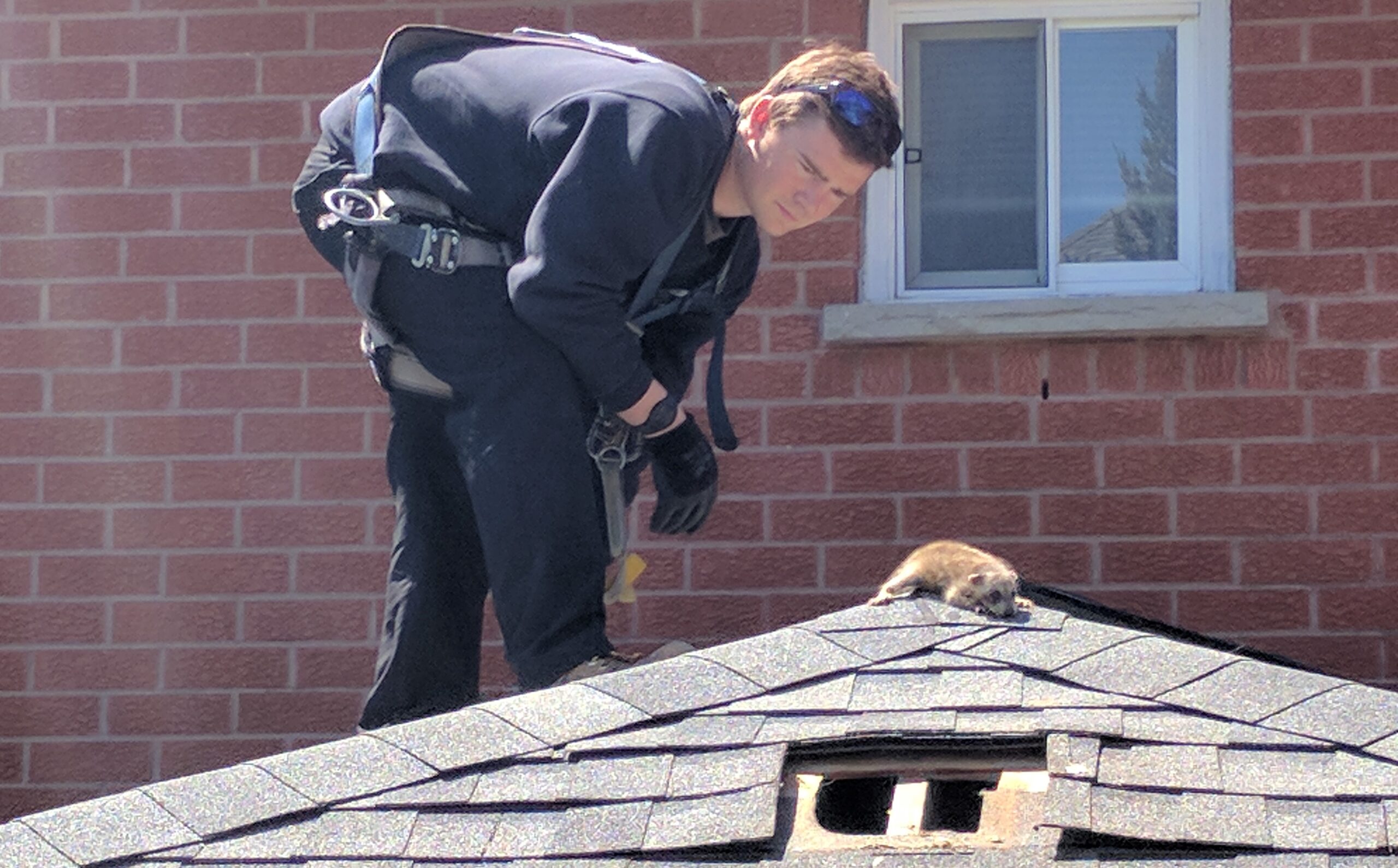At Skedaddle Humane Wildlife Control in Hamilton, we often get calls from home and business owners saying that they have raccoon problems. When dealing with wildlife, we always strive to help the animals as much as we help the people. This is because, in some ways, the raccoons have as much of a human problem as the people have raccoon problems.
This isn’t just kind-heartedness either. Our methods are highly effective, and they help to support the natural environment around us. We take our responsibility for co-existence seriously while also helping our customers to feel safe and healthy in their homes and businesses. This spirit is shared by our colleagues across the lake at Skedaddle Humane Wildlife Control Hamilton and our other offices around the country.
Why Do Raccoons Enter Our Homes and Property?
First, like all wildlife, it is important to note that raccoons have no concept of human real estate ownership. If you have a house in an area near raccoon territory, they aren’t going to simply stop foraging at your property line. They are very intelligent animals that are extremely capable of finding resources in their territory and exploiting it accordingly. So, if there is a nice warm area for a den or a free buffet of food scraps, raccoons will find it and utilize it.
A report published back in 2015 by the Toronto city government found that humans are the main cause of raccoon issues in urban areas. Basically, people are leaving compost piles, green bins and bird feeders out in their yards. They are also throwing food to pigeons in the parks. These behaviours are providing free food to the raccoons who, unsurprisingly, are more than happy to take advantage.
Are We Hurting Raccoons?
Humans have created an almost perfect situation for raccoons in cities. They have easy access to plentiful food, numerous places to create dens and hide, very few predators (larger animals mostly don’t venture into urban areas) and little to fear.
Although this may sound nice, it also makes the raccoons less capable of surviving on their own. In their natural habitats, raccoons are stealthy and somewhat skittish. They know they could be caught by predators, so they are careful. In urban areas, they sense the absence of the animals hunting them, so their caution and defences suffer.
When those raccoons are removed to other areas, they have trouble surviving. By giving them a raccoon paradise, humans are harming these creatures and making them dependent on us.
How Can We Coexist Better?
Fortunately, this is a win-win scenario. By getting better at minimizing attractors for raccoons, humans can cut down on the number of these furry bandits around our homes and businesses. This will also encourage them to live in areas that are more raccoon-appropriate.
At Skedaddle Humane Wildlife Control, our strategy involves finding what is causing the animals to come onto our customers’ property and fixing the problem. We then remove any babies from the home and place them closeby for the mother to find and relocate on her own. Finally, we clean and protect the property to minimize the risk of a return.
Our goal is to support the raccoons’ transition to living happy and healthy lives in their natural habitats. Other, less-humane strategies simply don’t work. They may get rid of a few animals, but they don’t cause them to stay away because the same attractants still exist. To help raccoons and ourselves, we need to stop giving them reasons to come into urban areas.
Help Yourself and Your Raccoon Neighbours
If you have raccoons near your property and need help with removal, contact our Hamilton team today! We will apply our multi-stage approach to relocate the raccoons and ensure that your home or business is no longer a playground for these clever and resourceful animals.



